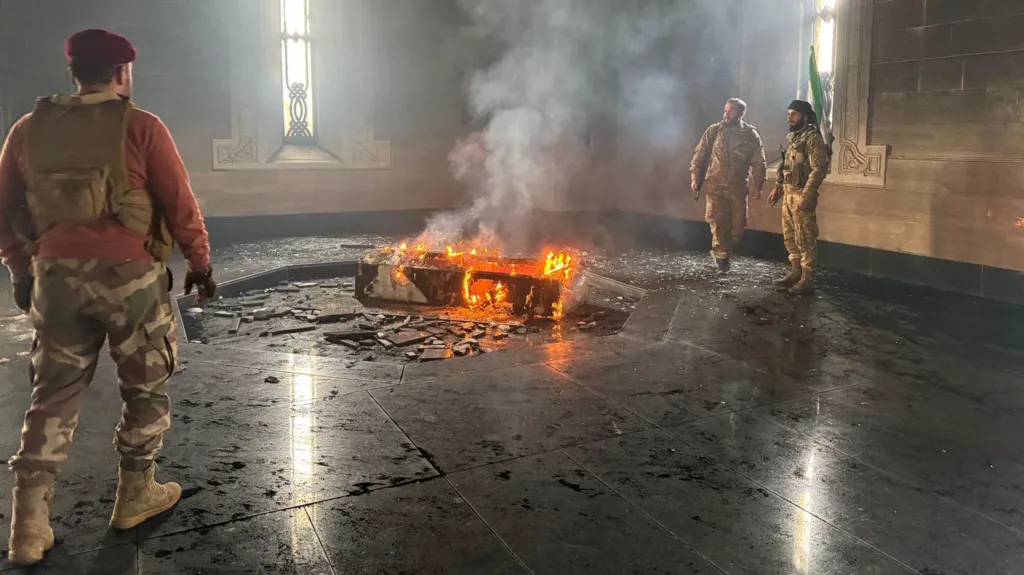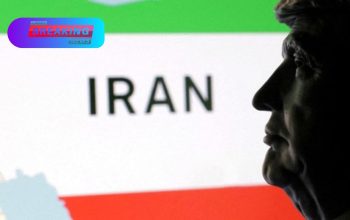
Syrian Rebels Torch Bashar al-Assad’s Father’s Tomb in Bold Protest
In a striking act of defiance, Syrian rebels have set fire to the tomb of Bashar al-Assad’s father, Hafez al-Assad. This bold move occurred in the city of Qardaha, a significant site for Assad loyalists. The tomb has long represented the Assad family’s hold on Syria, but this latest act is a powerful message from opposition groups.
The burning of Bashar al-Assad’s father’s tomb reflects a shift in the Syrian conflict. It signals that rebels are willing to challenge even the most sacred symbols of the regime. The destruction of the tomb is an emotional and political statement, aiming to undermine the Assad family’s decades-long rule.
The Importance of Hafez al-Assad’s Tomb
Hafez al-Assad, the former president, ruled Syria with an iron fist from 1971 until his death in 2000. His leadership laid the foundation for the Assad dynasty. Bashar al-Assad, his son, inherited the presidency, continuing his father’s legacy of authoritarian rule.
For many Syrians, the tomb symbolizes both the family’s power and the regime’s oppressive nature. By burning it, the rebels are rejecting not just the Assad regime, but the entire dynasty that has ruled Syria for generations.
What the Burning Means for the Syrian Conflict
The act of burning Bashar al-Assad’s father’s tomb is more than just an attack on a physical structure. It’s a symbolic move against the regime itself. The rebels hope this act will erode the Assad family’s legitimacy and galvanize further opposition.
This could escalate the conflict even further. The Assad regime has a history of responding harshly to such challenges. In retaliation, the regime may launch even more aggressive military strikes, targeting rebel-held areas.
However, for the rebels, this attack is a victory, as it sends a clear message: they will not back down. It serves as propaganda to rally opposition groups and draw attention to the continued fight for Syria’s future.
The Role of Rebel Groups in Syria
The exact rebel groups behind this action remain unclear. However, many factions across Syria have been fighting Assad’s regime for years. While their goals and tactics may differ, they share a common enemy: the Assad family.
Rebel forces in Syria come from various ideological backgrounds, ranging from secular to Islamist groups. Despite these differences, their focus remains on overthrowing the Assad regime and ending decades of authoritarian rule.
What’s Next for Syria?
The burning of Bashar al-Assad’s father’s tomb signals that the conflict is far from over. If the regime chooses to retaliate, the violence could intensify. This act is likely to further polarize the situation, deepening the divisions between the Assad regime and rebel groups.
The outcome of this action may depend on how both sides react. If the regime retaliates harshly, it could fuel even more resistance. Conversely, if it ignores the act, the rebels could gain more support and momentum.
Conclusion: A Bold Challenge to Assad’s Legacy
The burning of Bashar al-Assad’s father’s tomb represents a major turning point in the Syrian conflict. It’s an attack on the Assad family’s symbol of power, designed to weaken the regime’s hold on the nation. While the act is likely to escalate tensions, it also underscores the rebels’ determination to challenge the Assad family’s rule. As the war continues, symbolic gestures like this one may play a crucial role in shaping Syria’s future.


